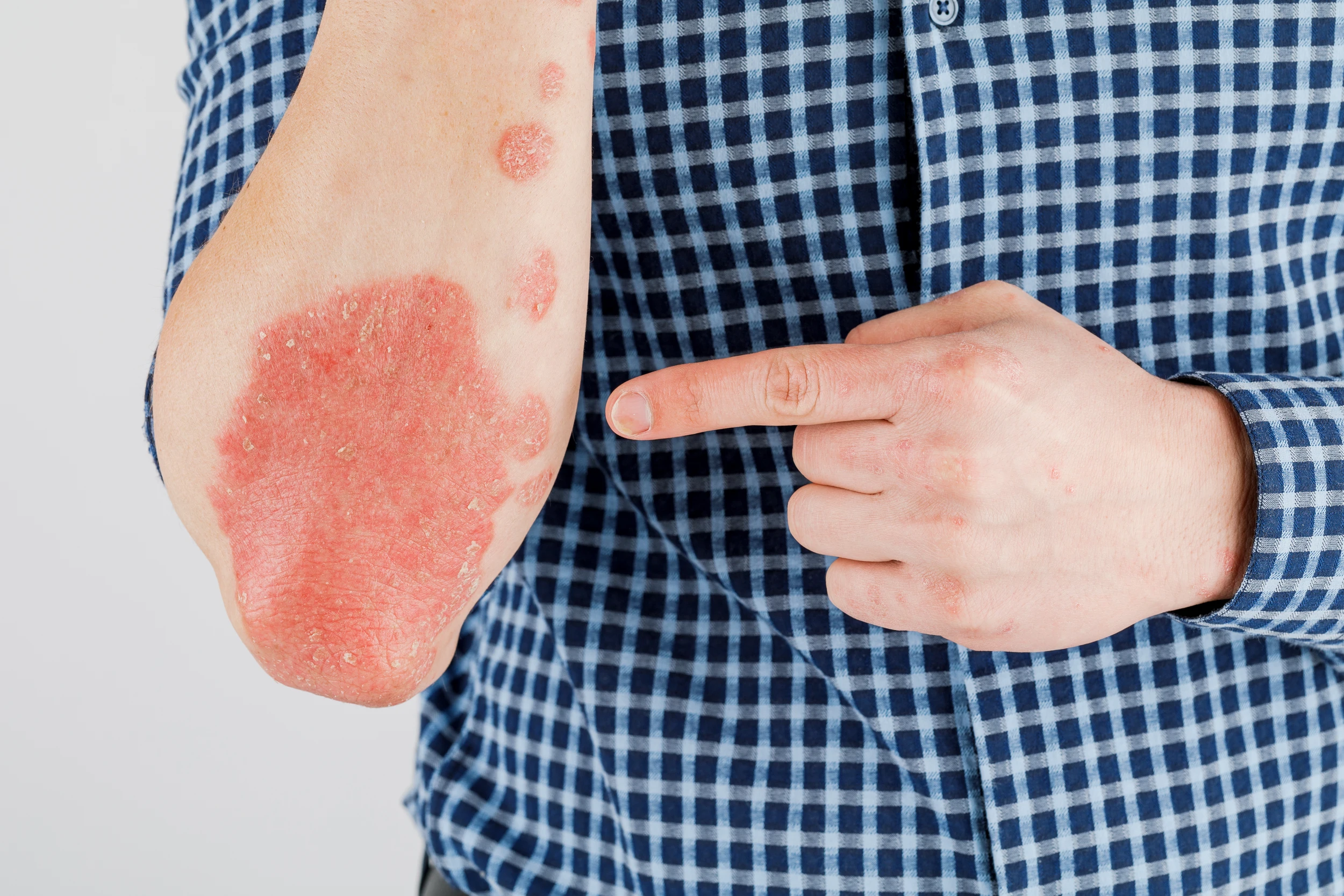

Chronic plaque psoriasis is a widespread and distressing inflammatory skin disorder marked by an overactive immune system. This leads to the accelerated turnover of skin cells, forming red, scaly, and often itchy patches. Beyond its physical appearance, psoriasis deeply affects mental well-being. Research shows that nearly 17% of individuals living with psoriasis also struggle with anxiety disorders. Stress, in particular, acts as a major trigger—worsening flare-ups and reducing the overall quality of life.
Conventional treatment options mainly involve pharmacological suppression of the immune system. However, these methods often overlook the emotional dimensions and internal imbalances, especially those related to neuroendocrine functions. At Dr. Anjali’s Ayurveda Centre Dubai, we offer specialized treatment protocols designed to address not only the physical manifestations of psoriasis but also its autoimmune and psychological roots. This integrated strategy reflects the core principles of Ayurveda.
In classical Ayurvedic texts, skin conditions fall under the broader category of Kushta. Specifically, Sidhma Kushta presents with thick, dry lesions (Bahirruksham), smooth to touch (Slakshnasparsa), with whitish or coppery discoloration (Sweta-tamra), and scaling similar to fine dust (Grushtamrajahkiret). These patches are usually observed on the extensor surfaces of limbs (Urdhwakayeprayena). The primary doshas involved in such cases are Vata and Kapha—highlighting the imbalance of vata pitta kapha as a contributing factor.
Ayurvedic scriptures point to emotional stressors as significant causes of skin ailments. Factors like fear (Bhaaya), prolonged grief (Santapa), and even unresolved guilt from past actions (Poorva Janma Papa) are cited as root causes. These emotional imbalances parallel modern understanding, where stress hormones are directly linked to immune system dysregulation. This underscores the relevance of Ayurveda in addressing not just symptoms, but the root causes of psoriasis.
As per Acharya Charaka, the condition presents with white, branny flakes over copper-colored skin—resembling the flower of Alabu in hue. These lesions are usually thin and persistent. From a modern lens, stress significantly impacts the HPA (hypothalamic-pituitary-adrenal) axis, which governs our neuroendocrine stress response. If you reflect, you may find that your flare-ups occurred during mentally vulnerable times, perhaps following trauma or periods of intense stress.
An unhealthy lifestyle leads to the buildup of toxins (Ama) in the body, often triggering autoimmune responses like psoriasis. Therefore, adopting a holistic approach becomes vital in healing. At our Karama Ayurvedic Centre, we offer tailored treatment plans that include internal herbal medications and external therapies like Thakra Dhara, Lepanam, and lifestyle modifications. These time-tested methods have helped many patients experience significant relief and, in many cases, complete recovery.
👉 Start Your Healing Journey Now
📞 Speak to our expert team and discover the right Ayurvedic care for you.